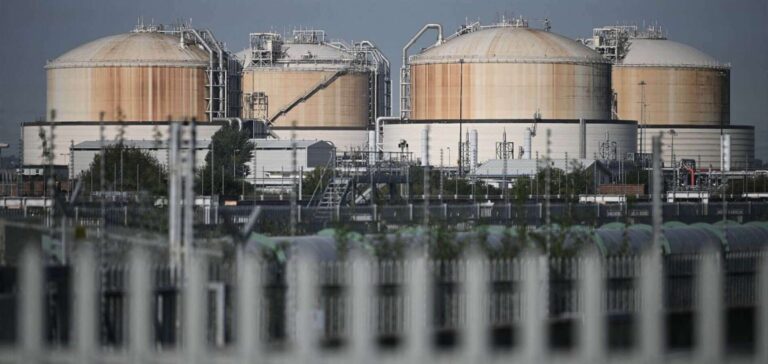Rising energy prices in Europe are causing great concern.
The temporary closure of factories and the lowering of thermostats for home and office owners are being considered to save energy this winter.
However, European governments would prefer to avoid this solution, which could prove highly unpopular.
Energy rates continue to rise
Hydrocarbon prices have risen sharply compared to the same period in 2020.
Forward gas prices for January 2022 have risen by 140% in the United States, over 500% in Europe and over 600% in Northeast Asia.
These increases are being passed on to electricity prices.
As a result, European reference term contracts for energy deliveries in January 2022 are reaching record levels.
They are valued at almost €66MWh, compared with €16 for the same period in 2020.
Some of the speculative bubble that has built up in recent weeks is likely to deflate as the first signs of market rebalancing become clearer.
But prices are likely to remain high for some time, until there is evidence of reduced demand.
Europe struggles to build up its stocks
Prices have accelerated since early April 2021.
That’s when stored gas began to fall below the pre-pandemic five-year average for 2015-2019.
As a result, Europe is struggling to import enough gas to replenish its already partially depleted stocks even before winter.
Regional storage sites are still only 74.7% full, the lowest level in over a decade.
By comparison, the five-year seasonal average prior to the pandemic was 87.4%, according to Gas Infrastructure Europe.
In the short term, Europe is unlikely to get much more gas.
Production remains fixed against a backdrop of global energy shortages.
Especially as pipeline deliveries from Russia are unlikely to increase.
In addition, poor weather conditions for renewable energy production have compounded the problem.
Gas-fired units have had to operate as a result, further straining inventories despite rising fuel costs.
Finally, this situation is also contributing to higher prices in North-East Asia and North America.
European importers are in direct competition with Asian buyers, who are also short of stocks.
How can we protect citizens and businesses?
Escalating prices mean that a drop in consumption will be necessary to prevent stocks from eroding to extremely low levels.
In theory, the crisis could be easily resolved if homes, offices, schools and factories were to turn down their thermostats by 0.5 to 1 degree this winter.
The result would be huge fuel savings with minimal impact on comfort.
In practice, political decision-makers will be reluctant to ask for thermostat reductions.
This would be indicative of a political failure.
Instead, European governments are trying to protect residential customers and small businesses from rising energy prices.
European states are thus trying to intervene on utility bills by capping prices or using tax cuts.
But if the crisis continues to worsen, due to more extreme winter conditions, protecting residential customers could prove unsustainable.
As a result, calls for lower energy consumption may become inevitable.
However, policymakers are likely to explore other fuel-saving measures.
These include reducing street lighting and closing certain buildings during the winter vacations.
Temporary closure of energy-guzzling businesses?
According to Reuters, greater savings could be achieved if manufacturers temporarily shut down their operations.
The sharp rise in energy costs will inevitably force many manufacturers to reassess their production plans.
Particularly those whose manufacturing processes are energy-intensive and/or have too little financial margin to cope with the extra costs.
For manufacturers, the advantages of short closures are twofold.
Firstly, they reduce energy costs.
Secondly, to increase the price of their products.
This would enable them to protect their margins against rising electricity and gas prices.
Once enough credible plant closures and other energy-saving measures have been announced, prices should eventually moderate.
However, plant closures would exacerbate problems throughout the supply chain.
They would intensify upward pressure on inflation, while disrupting customer relations.
As winter approaches, it is becoming increasingly clear that European hydrocarbon stocks will not be sufficient.
Rising energy prices present European governments and companies with a dilemma.
Either consumption will have to be reduced over the winter to guarantee reasonable prices.
Or, depending on the market, supplies will have to be paid for at full price.





















